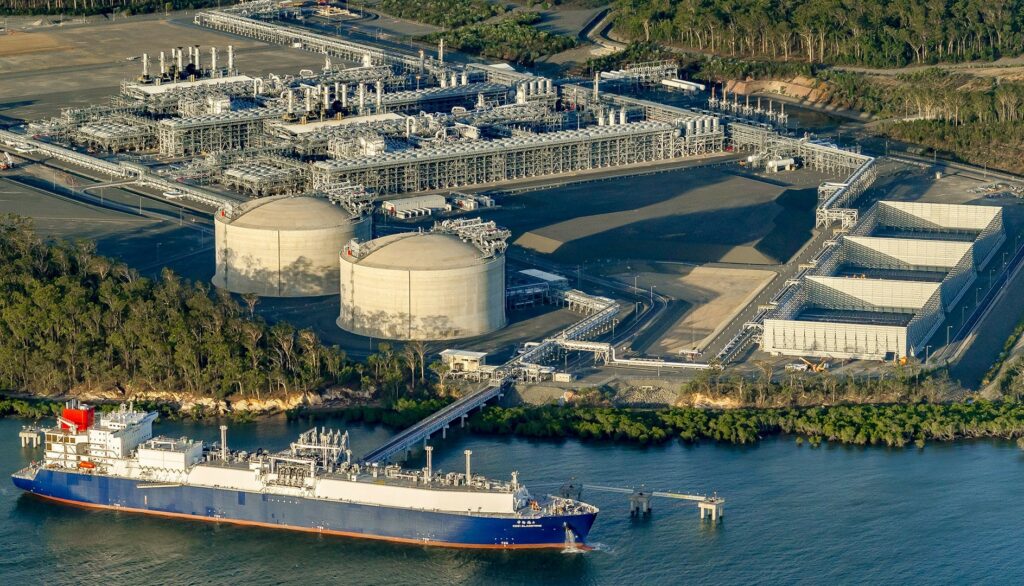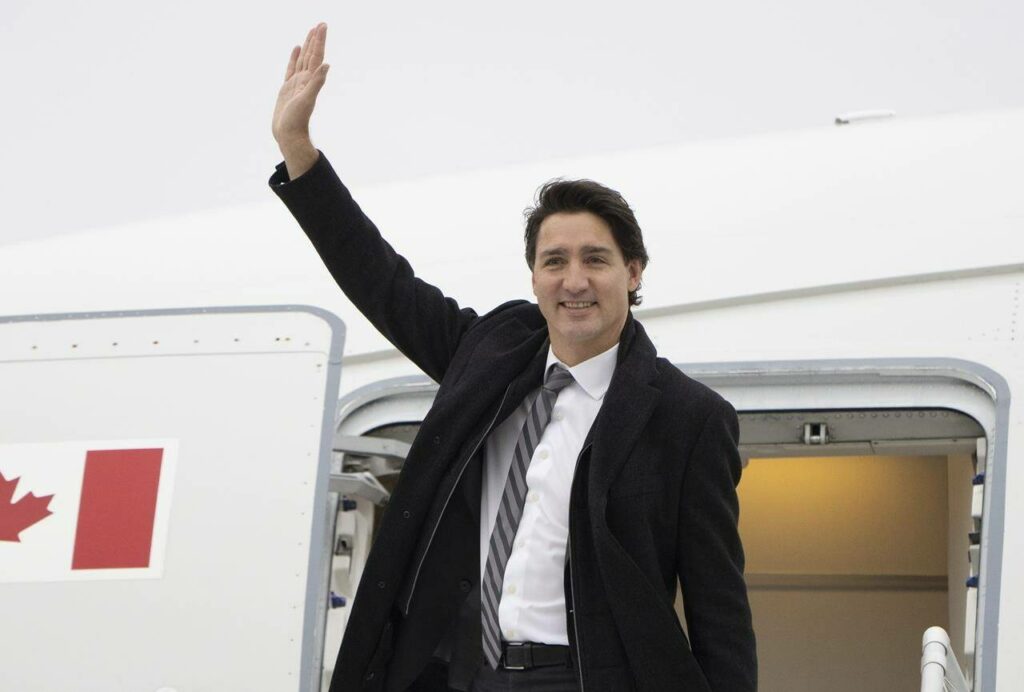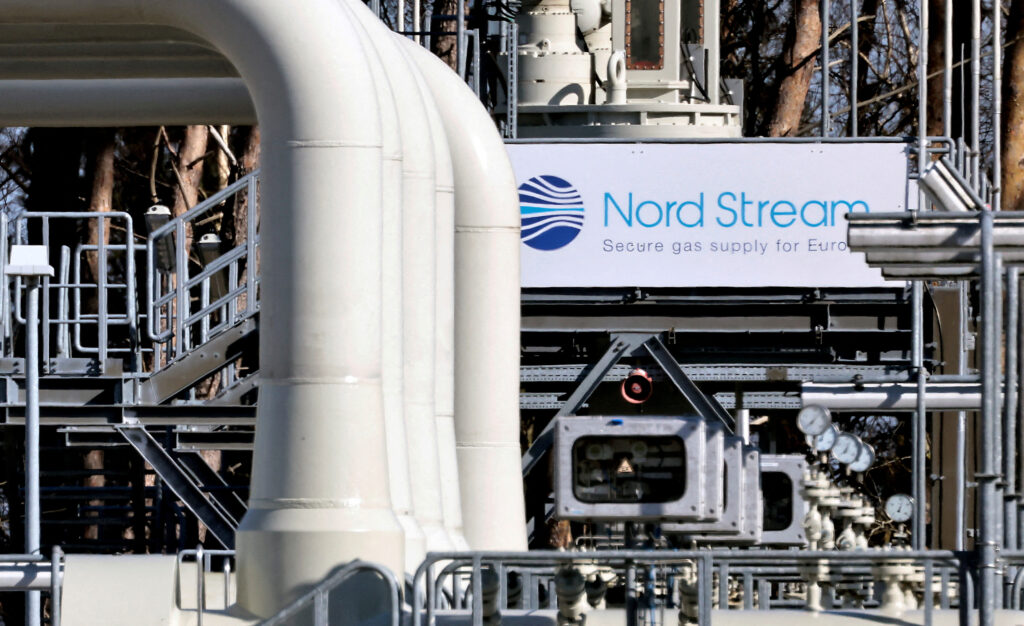While we’re struggling to be generous we should also note that Canada’s Deputy PM and public intellectual Chrystia Freeland just had the breakthrough insight that energy security matters. Since a new poll shows nearly three-quarters of Canadians want their country to export more gas and oil to reduce our allies’ dependence on Russia we might justifiably wonder what took her so long to catch up. But better late than never. The CBC, which knows full well on which side its bread is lavishly buttered, made Freeland sound like a modern-day prophet. “Canada’s deputy prime minister urged the world’s democracies Tuesday to confront the hard economic truths of a perilous new world order and seek common cause in the shared values of prosperity, energy security, protecting the planet, and free and fair trade.” Yes, it grates to hear such lectures from a senior member of an administration that has neglected Canada’s military and attacked its energy industry with singularly ill-advised insouciance. But since we call on people to recognize the error of their ways, admit it, and revise their position we must welcome the prodigal daughter back.
BTF
Even if she staggers home laden with weighty insights like: “As fall turns to winter, Europe is bracing for a cold and bitter lesson in the strategic folly of economic reliance on countries whose political and moral values are inimical to our own.” Ah yes. And wasn’t that nice German Chancellor recently in Canada grovelling for natural gas exports only to be told by someone’s boss that there was no business case for it? Well, there is, and there’s also a geopolitical case, and we can think of someone who just might be able to bend Mr. Trudeau’s ear on the subject.
We are not being snarky in pointing out that one-percenter and member of the World Economic Forum Board of Trustees Freeland was, before entering politics, particularly famous for her award-winning trendy book Plutocrats: The Rise of the New Global Super-Rich and the Fall of Everyone Else, some of whose most memorable lines are now sarcastically flung back at her. In point of fact Freeland seems to have made a career of seeming clever by spouting trendy cliches as if they were her own novel insights.
For instance her comments to the liberal Brookings Institute (it would be somewhere like that) this past week, while in Washington for a meeting of the World Bank and the IMF (it would be something like that): “It was a relief and a vindication to imagine the entire world peacefully marching together towards global liberal democracy. It is dispiriting and frightening to accept that it is not.” The first was, of course, very chic around 30 years ago when Francis Fukuyama proclaimed the “end of history”. But it was never a deep thought and it has not improved with age. (Unlike “Only the dead have seen the end of war” which has not only stood the test of time but has managed to get attributed to sages from Plato to Thucydides, albeit apocryphally.)
It is also hard not to start slow-clapping at such pseudo-insights as “We will quite likely continue to face a tyrannical Russia on Europe’s border and powerful authoritarian regimes elsewhere.” But we applaud sincerely when she continues “We need to understand that authoritarian regimes are fundamentally hostile to us. Our success is an existential threat to them. That is why they have tried to subvert our democracies from within and why we should expect them to continue to do so.” And make a mental note to pass on this remark to her colleague the foreign affairs minister, who is struggling to devise an “Indo-Pacific strategy” partly because of the chronic incapacity of the Canadian Establishment to grasp what Communist China is and what it means to us.
Freeland also hyped the virtues of free trade, so she might mention to Mr. Trudeau that we conspicuously lack it within Canada and it is well within his authority to fix this problem. But first things first. Who’s the prominent and influential public intellectual who just said: “Canada must and will show similar generosity in fast-tracking, for example, the energy and mining projects our allies need to heat their homes and to manufacture electric vehicles”?
Yup. C. Freeland. And while “the energy… projects our allies need to heat their homes” might in some people’s minds involve solar panels, windmills or some truly daffy thing like hydrogen, even the CBC got the point here: “That sentiment is sure to raise eyebrows among critics who accuse Prime Minister Justin Trudeau and his government of dragging their feet on approving energy projects like export terminals for liquid natural gas.”
Accuse might be the wrong terminology here; point out is more like it. And thus the CBC turns the mike over to Goldy Hyder, CEO of the Business Council of Canada, who called Freeland’s speech a “refreshingly serious prescription” without specifying why it was refreshing beyond:
“The real test, however, is can Canada convert intentions into actions and be a reliable supplier of much-needed energy and critical minerals. Can Canada expedite projects, as the prime minister has proposed, while providing regulatory predictability to attract the capital to build much-needed infrastructure?”
And Flavio Volpe, president of the Automotive Parts Manufacturers’ Association, broke no records for originality but made up for it in pertinence: “What we do next is the most important part of this laudable proposal.” That blasted deliverology again.
We also note that as soon as she’d gone down that side of the street, her colleague Jonathan Wilkinson, the Minister of Natural Resources, tried to walk it back on the other, suggesting that “We are very interested in actually moving this forward, but it has to be done in a manner that is consistent with addressing the climate issue. And let’s not get so tied up just on LNG. Canada has enormous opportunities with respect to hydrogen, derived from natural gas and from renewables” and “battery manufacturing” and “electric vehicle manufacturing” and so on and cliché on: “You know, Canada is enormously well-situated to be the clean energy supplier of choice to the world as we go through this transition.” And when pressed on Germany’s desire for Canadian LNG for which we lack infrastructure, and our inability to meet Freeland’s desire to fast-track it, he claimed we already had upped our capacity to ship hydrocarbons but it’s a long way from Alberta to New Brunswick and it hurts the business case compared to American exports unless the Germans are willing to “pay a premium for the gas.” (Then he blamed Stephen Harper for being mean to aboriginals, we kid you not, and kept harping on needing it to fit into the framework of existing climate policy.)
Still, recognizing an error is the first and most essential step to fixing it. And it sounds very much as though Freeland has taken that step.



We should be keeping our own gas and oil for our own use. Western Europe has no one to blame but themselves for the mess they are in now. At least most European people are getting their heads outside the globalist propaganda bubble and figuring out who their real enemy is. It is not Russia.
https://yaxls.wordpress.com/2022/10/14/who-is-winning-the-ukraine-war/
Listening to Freeland speak about helping our allies with their energy needs is about as helpful as listening to Trudeau talk about the importance of tolerance and sunny ways. Give no cheers for political speeches; wait for the actions.